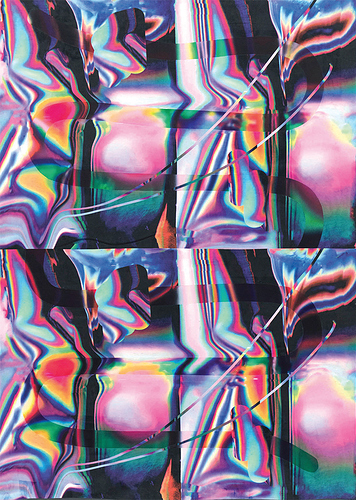In the brand new April–May 2018 issue of Bookforum, Charlotte Shane reviews two books that explore the psychological benefits of psychedelic drugs: Trip: Psychedelics, Alienation, and Change by Tao Lin, and How to Change Your Mind: What the New Science of Psychedelics Teaches Us About Consciousness, Dying, Addiction, Depression, and Transcendence by Michael Pollan. As Shane notes, the authors draw almost opposite conclusions from their experiments with psychedelics: Lin extols them as beautiful and subversive for their ability to generate happiness, while Pollan cautiously recommends them for only the most limited and regulated medical use. Read an excerpt from the review below, or the full text here.
It’s also telling that while the reported “spiritual” angle of psychedelics is what hooked him, Pollan had no interest in these drugs until they began receiving high-profile institutional approval, in the form of both Times coverage and university studies, like one testing psilocybin’s power to alleviate “existential distress” in terminal cancer patients. There are, of course, more than two “types” of drug users, but I bet you could cleave the lot of us fairly neatly between those who believe institutions have people’s best interests at heart—that they should be trusted to figure out the “best” way to take drugs—and those who see institutional attention as a sign of dark developments to come. At the risk of sounding like a teenager with pot-themed socks and a pot-themed skateboard, I’m confident that many drugs are illegal because they threaten the status quo and not because they’re any more dangerous than alcohol or sugar. As Lin writes while channeling McKenna and perusing “a CIA-LSD-suicide-homicide thread” on the internet: “Psychedelics are illegal not because the government wants to protect us from us, but because they catalyze intellectual dissent.” Pollan says much the same thing when he explains that LSD became so controversial in the ’60s primarily because it was tightly linked to the anti-war, anti-authority counterculture: “Psychedelics introduced something deeply subversive to the West that the various establishments had little choice but to repulse.” If those same establishments are suddenly willing to welcome psychedelics into the fold, we should at least ask why.
Image: Anne Vieux, //Primary Curve (Double Vision Series), 2017. Via Bookforum.
